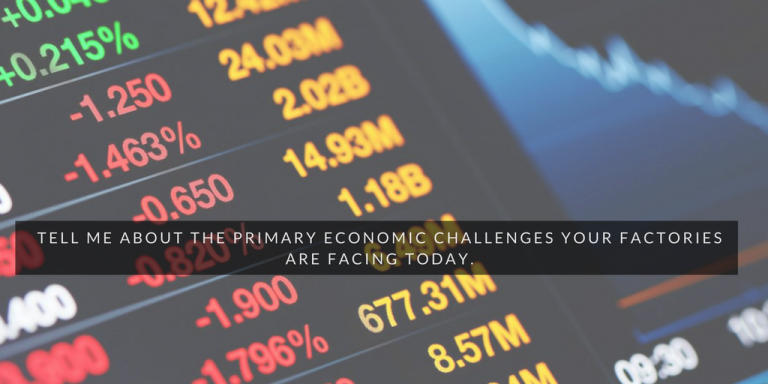4 Conversations to Have With Your Vendors
Very often brands and retailers themselves do not own or even work directly with the factories manufacturing the products they sell.
Vendors and sourcing agents play a crucial role in our global supply chain and work in the middle of the system, often maintaining and overseeing the direct relationship with factories and helping the brands and retailers meet their sourcing and production needs.
They are essential links, often acting as the vehicles for messaging and communication about ethical trade expectations.
These key business partners are more than just gate keepers that allow access to factories abroad, they also play a critical role in interpreting expectations, communicating priorities, and understanding challenges that factories in their base are experiencing.
They’re more than channels through which information is sent down to the factories; they can also play a critical role in communicating regional and factory-specific challenges.
There are plenty of trend reports floating around respective industries, assigning risk levels for key human rights issues in every sourcing country. These reports are an important part of the puzzle, but they aren’t the entire story.
It’s likely that the factories in your vendors’ pool have been through audits before, and it’s even more likely they have ongoing corrective action plans at some stage with other brands and retailers. If they do, your vendor should be aware of it.
Vendors should have a process in place to manage this information, and they should have a finger on the pulse of their factories’ labor issues. Ideally this means they’ve set up feedback loops that engage both management and workers. If they don’t, it’s time to dig a little deeper and explore how they onboard and oversee their partner factories.
The political landscape of a sourcing country often plays a critical role in how well versed a factory is in legal requirements for social and environmental issues.
Even if a country has stringent labor or environmental laws on the books, if they don’t have the budget or infrastructure to verify compliance with these laws, then it’s likely factories are not being held accountable at a local level.
Vendors who have longstanding relationships with factories around the globe should be aware of the political pressures (or lack of pressures) that factories and raw materials suppliers are facing. Where there is less political oversight, vendors should have in place some method of verifying their factories are, at a minimum, meeting local legal requirements.
Economic pressures are very often the cause behind critical issues such as human trafficking, child labor and falsified documentation (from falsified working hour and wage records to falsified environmental tests).
Factories often face economic challenges when managing multiple audits annually as well as associated costs required to come into compliance. Add onto that the possible costs associated with labor shortages or changes in legal requirements, such as overtime wage, and these pressures can add up quickly.
Because vendors work closely with factories to ensure they are meeting delivery and quality requirements, they also have the opportunity to engage factories in conversations about what their most pressing economic challenges are.
With a greater understanding of the costs associated with compliance, and an awareness of external pressures partner factories are facing, vendors can be more readily prepared to share this information with brands and retailers at the start of the sourcing conversation and product price negotiations.
The reality is that climate change is having the most severe impacts across developing countries – many of which are key sourcing countries.
These impacts can have a direct affect on a factory’s ability to operate, as well as on the workers and managers themselves who often live near the factory and are therefore also impacted by severe weather events.
For any company evaluating risk and impact in their supply chain, it’s essential to take into account the potential impact of climate change in the countries and regions where products are being sourced.
Vendors are in a key position to discuss with factory managers what they’ve been experiencing with regards to climate impact over the past few years – both from an operations perspective as well as how it has impacted the workers and labor supply.
As more brands and retailers begin to evaluate the local social and environmental impacts of production, this type of information will be a critical component in sourcing decisions.
The key takeaway here is to establish feedback loops within your supply chain- and in doing so don’t forget to include key partners such as vendors and sourcing agents.
Receiving information solely from vendors doesn’t mean a brand or retailer doesn’t need to do additional due diligence- this, like an audit, offers just a fraction of the whole picture.
However, brands and retailers can create more dynamic feedback loops by beginning value-based conversations with vendors that go beyond product quality, cost and delivery to integrate metrics that are evaluated in social and environmental assessments and sustainability reports.
This more dynamic feedback offers additional insight and broadened understanding of complex issues. Perhaps even more importantly, establishing clear channels of communication that invite information to flow in both directions has greater potential to engage and include feedback from factory management as well as workers themselves.





